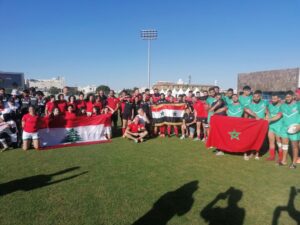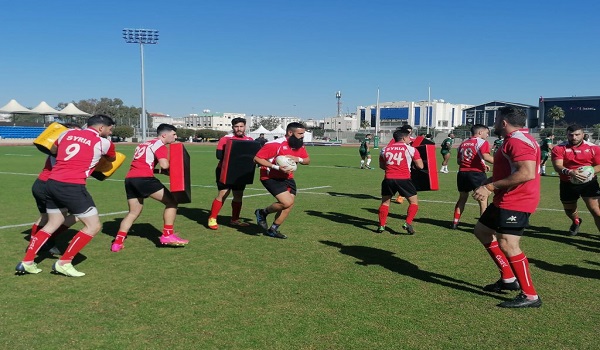Syria has recently taken part the Arab Rugby Sevens Championship held in the Saudi city of Al-Taif between February 16 and 17, 2024 with the participation of ten men and 8 women national teams. In this tournament, Syria maintained its level among Arab countries playing rugby sport.
First places went to Morocco in the men’s category after defeating UAE 19-14, and to Tunisia in the women’s category after a 33-5 win against with UAE.
In both the men and women categories, the Syrian players did their best to achieve acceptable results and they managed in the women category to rank fourth again after losing to Egypt in the bronze final.
The Syrian men’s rugby team, in which the Chilean player of Syrian origin Karim Mosa played, finished in the 8th place in the tournament after losing to the host Saudi Arabian team by 28-17. The last Syrian points came from a penalty after a Saudi infraction that prevented a try that Mosa was precisely looking for. Those points, however, were not enough to enable the team to win, according to Pablo Sapag, a columnist in the “Rugbiers” website and Professor at Complutense University in Madrid.
 The Syrian team achieved a precious draw in the match against Libya.
The Syrian team achieved a precious draw in the match against Libya.
Sapag affirmed that the Chilean player of Syrian origin Karim Mosa felt positive about the result and said that “despite the difficulties the players had in arriving from Syria, we competed and always went from less to more. The draw with Libya, which was as strong as the other North African teams, was the reward for our effort and allowed us to continue growing and improving.”
By Morocco and Tunisia’s wins in this championship, the North African countries regain supremacy in Arab rugby, Sapag explained.
It is to be noted that a number of Syrian expatriates in Chile, Scotland, Australia and United Arab Emirates are paying in the Syrian men’s rugby team. They joined the Syrian mission which traveled almost 40 hours from Damascus to Al-Taif to represent Syria in the most important Arab tournament in a sport whose popularity is growing in Syria and the Arab region.
Hamda Mustafa

